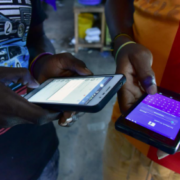The United Nations International Children’s Fund (Unicef) and the Forum for African Women Educationalists in Zimbabwe (Fawezi) have partnered with the Ministry of Primary and Secondary Education to launch a mobile laboratory program. This innovative project aims to bridge the gender gap in science, technology, engineering, and mathematics (STEM) education, empowering over 4,000 adolescent girls, 350 teachers, and 3,500 community members in Epworth and Hopley.
The program is part of the “Transforming Adolescent Girls’ Opportunities (Tago) through STEM Skills Project,” was made possible through funding from the Canadian National Committee for Unicef.
Recently, thirty-four mobile science laboratories were delivered to 15 primary and 19 secondary schools, including Blackfordby and Southlea Park. These labs will provide hands-on learning experiences, helping girls gain confidence in STEM subjects and preparing them for future careers in these fields.
Quality STEM Education for All
Lydia Madyirapanze from Fawezi emphasized the need for quality STEM education, citing a lack of resources as a significant barrier for girls. Jotham Mupunza, a provincial education director, noted that the labs will improve STEM learning for all students, regardless of gender. Joëlle Ayité from Unicef highlighted the importance of providing practical learning opportunities, ensuring that girls in underserved areas can explore and excel in science and technology.
A Step Towards Gender Inclusivity in Education
This initiative aligns with Zimbabwe’s National Development Strategy 1, promoting gender inclusivity in education. By providing equal access to quality STEM education, the program aims to empower girls and women to participate fully in the country’s economic development.
The project has already shown promising results, with female STEM teachers being trained, STEM fairs organized, and outreach programs conducted to encourage girls in these fields. As Zimbabwe continues to push forward with its development goals, initiatives like this mobile laboratory program will play a vital role in shaping the country’s future.












Comments